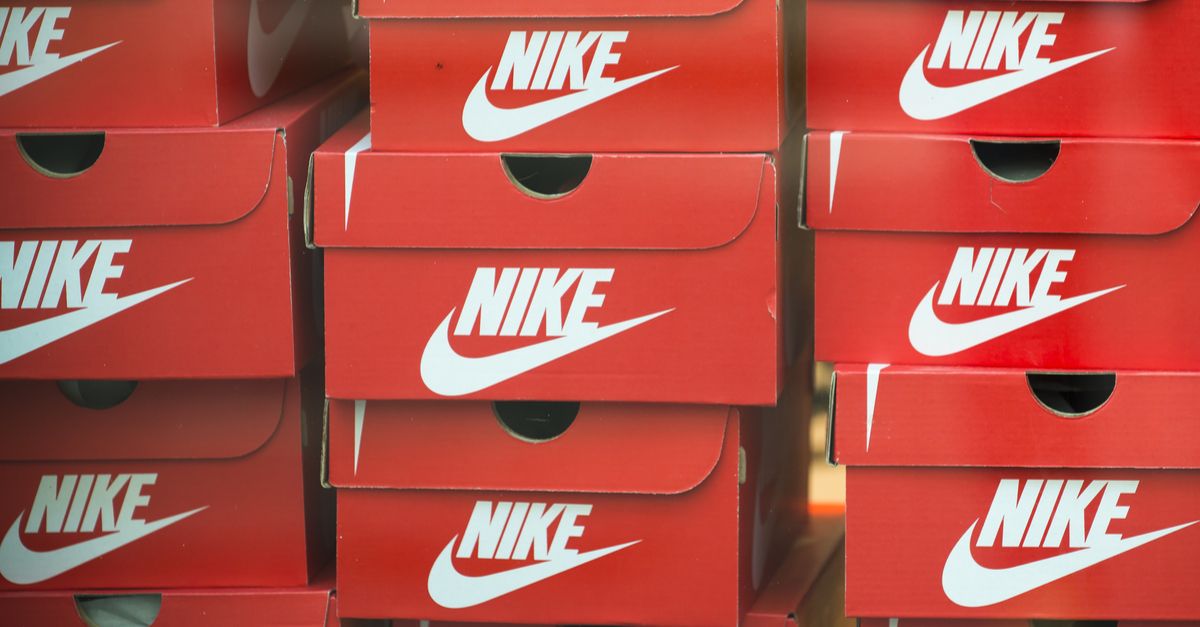Everyone loves a good tale of corporate mayhem. Here's a short version of this 1989 news story:
Nike has a television commercial for hiking shoes that was shot in Kenya using Samburu tribesmen.
The camera closes in on the one tribesman who speaks, in native Maa. As he speaks, the Nike slogan "Just do it" appears on the screen.
Lee Cronk, an anthropologist at the University of Cincinnati, says the Kenyan is really saying, "I don't want these. Give me big shoes."
Says Nike's Elizabeth Dolan, "We thought nobody in America would know what he said."
Business blunders delight us in that we like to see the powerful with a bit of egg on their faces. The facts of this story aren't in dispute — there was such a commercial, it was shot in Kenya, and over a subtitle of "Just Do It" the tribesman said "I don't want these. Give me big shoes" in his native Maa. But why did this happen? And was Nike aware of what the man was really saying, or had they been caught flatfooted?
Nike's explanations were contradictory:
Nike spokeswoman Liz Dolan said Cronk is correct. "We knew what he was saying," Dolan said. "It was our line."
She said Nike originally intended to have the commercial end with a joke line in which the tribesman complained that Nike sent him the wrong size. But the editors decided the simple Nike slogan worked better. "It was so lovely and beautiful, we dropped the joke," she said.
Dolan also said the tribesman repeated a phrase that is the Maa equivalent of "Just do it," but the video of the other phrase worked better. "The Maa version of 'Just Do it' was too lengthy" for a
30-second spot, she said.
Nike contends that an earlier script called for the tribesman's ironic comment, but the company decided in the end to stick with its slogan in the subtitle.
So far so good: at this point it sounds like Nike changed the script at the last second, that they knew what the fellow was saying but went with it anyway because this particular string of Maa sounded better to North American ears than an accurate one would have. Bit naive of them not to realize that someone in the viewing audience was bound to know enough Maa to get the joke, but still a far cry from unintentionally ending up the goat in this story.
Another explanation from the commercial's director surfaced, however:
An embarrassed Nike spokesman admits the film crew had to improvise after having difficulty in obtaining a Maa version of the slogan. "We never really knew what the tribesmen were saying," concedes director Hannah Hempstead.
Adding to the credibility of that language snafu explanation was this snippet from a 1990 magazine article:
The Samburu tribe was Hempstead's cast for the
:30 Nike spot. The Samburu speak the Mah language, and the crew's translator spoke Swahili. This caused a minor communication glitch that was partially remedied by pointing to pictures in a book on the Masai tribe to show the cast what was needed on film.
True or not, tales of inappropriate foreign phrases sneaked into films have been around for many years, as evidenced by this anecdote from the pen of M*A*S*H star Jamie Farr:
I remembered one Saturday night back at the Rivoli in Toledo. Everyone in the neighborhood (including most of the Arab-American community in Toledo) had turned out to see "Sirocco" with Humphrey Bogart [1951], set somewhere in North Africa. There was one scene in a crowded bazaar. As Bogart passed through, and the scene began to fade, one Arab voice rang out, "Ya hallah deen bayak!" That almost brought the house down. "What?" The non-Arabs in the house wanted to know: "What is everybody laughing about?" My buddy, Gregory Morris, decided he would
translate ... "That means, 'Goddamn your father.'"

